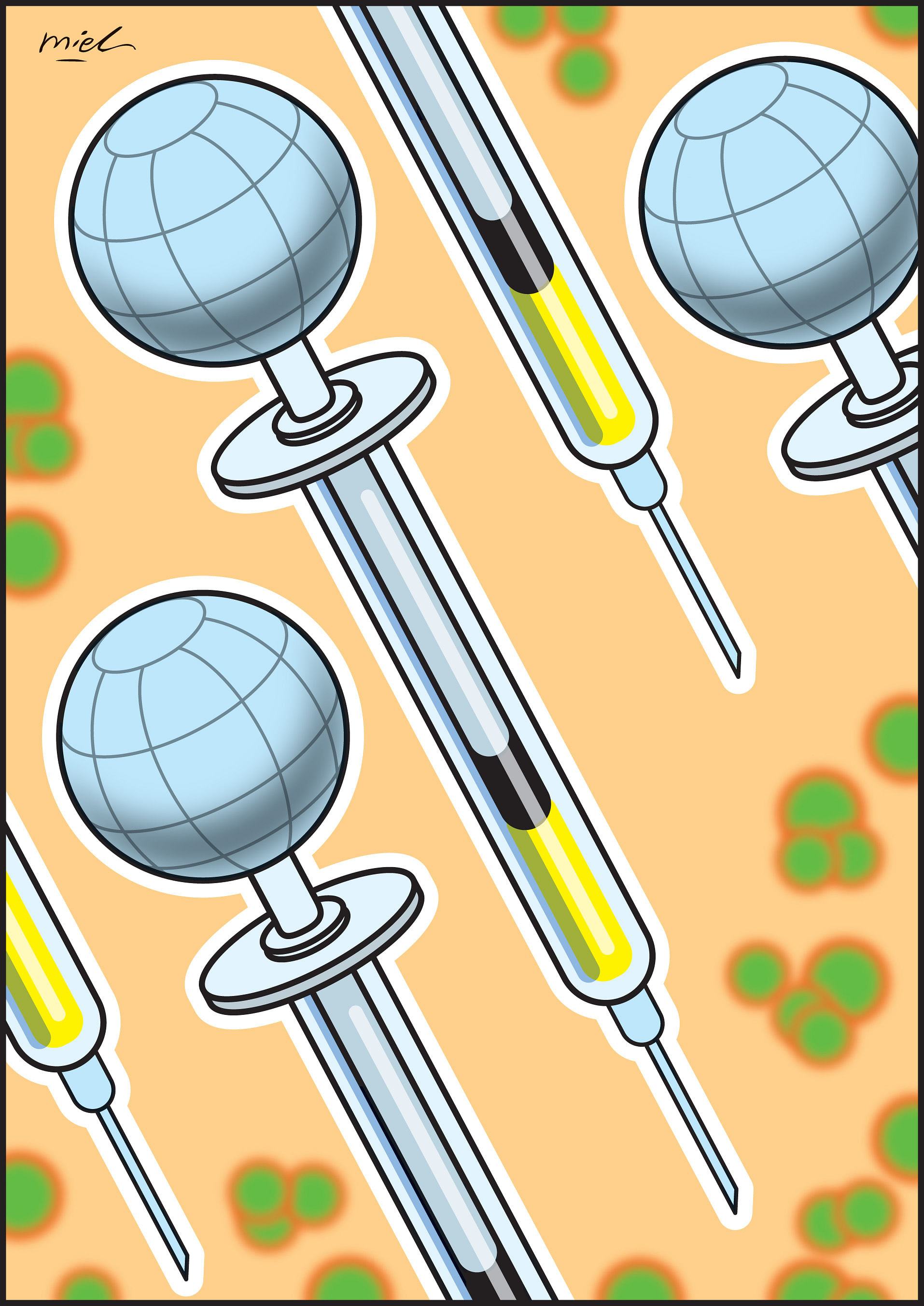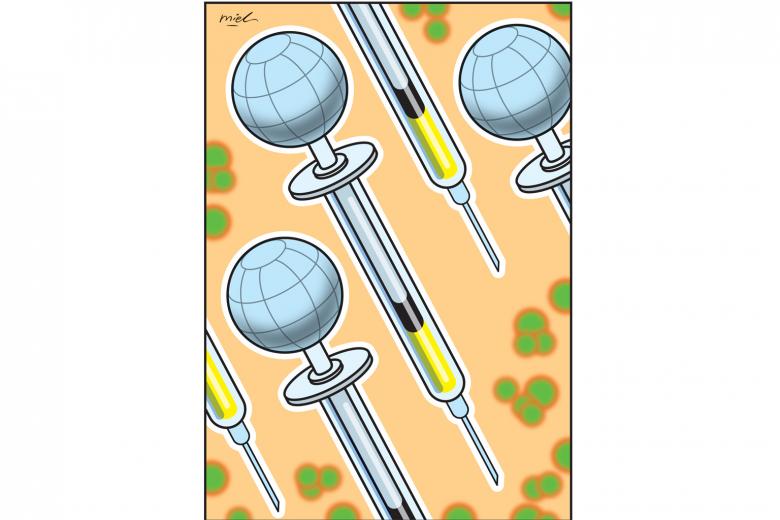During the depths of the global financial crisis in April 2009, the Group of 20 (G-20) held a crucial summit in London, chaired by then British Prime Minister Gordon Brown. In the run-up to the summit, financial markets were crashing, economies were sliding into recession and confidence was shot to pieces.
The G-20, which comprises not only major industrial countries, but also large developing and middle-income countries, managed to coordinate and come up with a collective response. Together, the members provided a US$2 trillion stimulus to the global economy, pledged more resources for the International Monetary Fund (IMF) to help troubled economies and committed to strengthen supervision and regulation of financial markets and institutions. The G-20 is now the de facto steering committee for the global economy.
Confidence was restored, financial markets bottomed out and the crisis began to lift. The big lesson from the London summit - probably the most successful summit of all time - was that international cooperation during a crisis can make all the difference.
The world is facing another crisis now, more serious than in 2009 in that it is not just financial and economic, but also a public health crisis of global proportions. Yet, international cooperation - other than among some central banks - has been close to non-existent.
On March 16, the Group of Seven (G-7) industrial countries - itself an archaic body that does not include countries like China, India, Russia or Brazil, or any others from the middle-income or developing world - held a video conference call in which they promised to do "whatever it takes" to deal with the Covid-19 pandemic. But they made no concrete commitments. Nothing has been heard from the G-7 since. The leaders went their separate ways and did their own thing.
A CHINA-U.S. RIFT
In the United States, President Donald Trump and some of his administration's senior officials, having failed to take the fast-spreading pandemic seriously before it arrived on American shores, made no attempt to cooperate with the Chinese government (or any other) in trying to manage the pandemic response. Instead, they riled the Chinese by declaring Covid-19 "the China virus".
Provoked to retaliate, the Chinese Foreign Ministry made the unfounded claim that the virus had in fact been brought to China by the US military, which China's Ambassador to the US Cui Tiankai later sensibly walked back.
US Commerce Secretary Wilbur Ross viewed the coronavirus through a trade-war lens, declaring soon after the outbreak that the spread of Covid-19 through China would "accelerate the return of jobs to North America", as if the epidemic was a blessing.
The trade war has in fact helped weaken America's response to the pandemic. US tariffs have disrupted imports of medical supplies from China that the US desperately needs. Such items as CT scanners, thermometers, patient monitors and disposable headgear, of which China is among the world's major suppliers, are still subject to 25 per cent tariffs. As the Peterson Institute for International Economics in Washington has pointed out, the US did not increase its purchases from the rest of the world to offset the decline in these imports from China.

Greater cooperation between the US and Chinese governments, including rolling back the trade-war tariffs, instead of needling and name calling, would have created mutual goodwill and helped both countries.
The saving grace is that the American and Chinese scientific communities have continued to cooperate in private. American scientists appreciated China's efforts in sharing the genome sequence of the coronavirus early on and are closely following the case studies of cured patients and other medical findings from China. Chinese scientists, on their part, have been generous in sharing their research and best treatment practices.
EU'S SEMI-COORDINATION
Over in Europe, the cooperation has been better, but still sub-par.
During the early stages of the outbreak in Italy, Germany and France started hoarding face masks and other protective gear instead of sending such items to where they were then most needed. Although this short-sighted practice has since stopped after the European Commission finally got its act together, Italy suffered heavily from a shortage of sufficient protective equipment at a critical time. China did more to support Italy with medical supplies than the country's fellow European Union members.
In the economic sphere, the European Central Bank has, like the US Federal Reserve, launched a massive bond-buying programme. On the fiscal front, although individual EU countries are making their independent plans for expansionary policies, the EU has yet to come up with a concerted and coordinated fiscal stimulus. The danger is that if some countries act without regard to the effects of their policies on others, this would impact spreads on sovereign bonds, which might make it harder for governments of weaker EU economies like Italy and Spain - which happen to be the worst hit by the pandemic - to access finance from capital markets. A collective fiscal response from the EU would also boost confidence across Europe.
HELPING THE DEVELOPING WORLD
Looking beyond wealthy countries, the Covid-19 pandemic is now spreading in the developing world. Infections are rising in South and South-east Asia, the Middle East, Africa and Latin America (https://ncov2019.live). Most countries in these regions - some of them heavily populated - have weak public health infrastructure and insufficient financial or medical resources to cope with full-blown epidemics. Many are also being hit by outsized commodity shocks as well as devastating declines in other sources of earnings such as tourism.
They will badly need help - some of them already do - but as yet, rich countries have offered them little or no support. Only China - which was the disease epicentre but seems to have managed to curtail the spread of the virus internally - has been proactive in sending help abroad, in terms of equipment and medical expertise.
With rich countries facing severe budgetary pressures of their own, the best hope for the developing world lies with international institutions. The IMF has activated its fast-disbursing emergency financing facilities to provide US$50 billion (S$72.4 billion) to developing countries, some of which will carry zero interest rates. It has also pledged to mobilise its US$1 trillion lending capacity to help its members.
Some economists, such as Nobel laureate Joseph Stiglitz, suggest that the IMF should also provide liquidity support to developing countries by allocating to them more of its own currency called Special Drawing Rights - effectively creating money like the Federal Reserve does with quantitative easing. But that would call for international cooperation because it would need the approval of the IMF's rich members.
The Federal Reserve could also lend a hand to emerging market economies, which are being hit by a dollar shortage. The Washington-based Institute of International Finance, which tracks global financial flows, recently reported that international investors withdrew about US$42 billion from emerging economies in January alone, the largest outflow ever recorded.
Faced with both currency crises as well as debt crises because of their dollar-denominated debts, these countries need urgent access to US dollar funding. The Fed has so far provided dollar swap facilities to just a handful of other central banks - mostly those of major economies. It needs to do the same for emerging economies.
The World Health Organisation (WHO) is another institution that can help the developing world - and rich countries too - at this time. It has the ability to coordinate global public health responses and the expertise that especially poor countries rely on. But the WHO has had its budgets slashed in recent years at the behest of some its rich country members. As a result, its emergency response capabilities have been compromised, and many of its epidemic control experts have left the organisation.
Last month, the WHO called for US$675 million in donations so it could ramp up efforts to deal with the spread of the Covid-19 pandemic, especially in the developing world. Singapore has responded promptly with a US$500,000 donation. Other donors, especially the US, the EU and Japan, must agree to replenish the WHO's coffers.
A GLOBAL PUBLIC GOOD
Public health is, after all, a global public good. At no time is this more self-evident than the present. Viruses are the ultimate globetrotters, respecting no national boundaries and needing no passports or visas. One of the biggest lessons that the Covid-19 pandemic has taught us, even in its relatively early days, is how far-reaching and profound the consequences of an interconnected world can be.
Controlling a pandemic like this cannot be done without a global response. No country can wall it out if others don't do the same. Any country that is not able to - regardless of its geography, ideology or political system - needs all the help it can get.
And it's not just about providing financial support and medical equipment; it's also about sharing knowledge. Every country will have something to learn and something to teach, which will benefit all. International cooperation is no longer optional. It has become indispensable.
There are glimmers of hope. Finance ministers and central bankers from the G-20 recently held a video conference where they pledged to coordinate their responses to the Covid-19 pandemic - although nothing specific was revealed and there was no joint statement. The G-20 leaders are expected to hold a virtual summit later this week. Hopefully they can match, in impact, what the London summit of 2009 managed to achieve.












